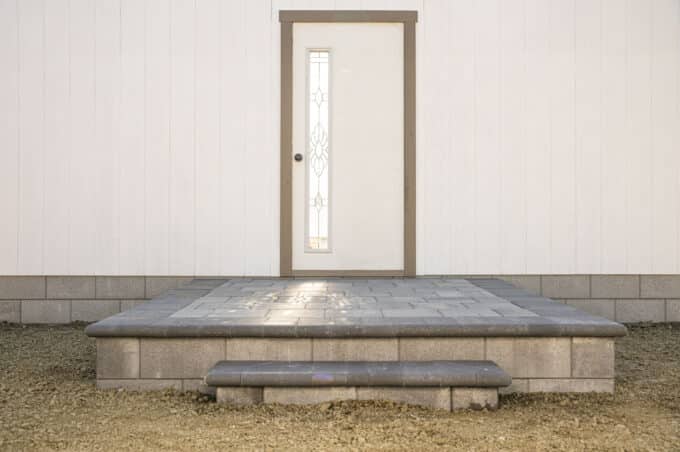
How to Build a Raised Paver Patio
Building a raised paver patio is an excellent option for homeowners who want to expand or raise their outdoor entertainment area and create a cozy, relaxing spot. In this blog […]

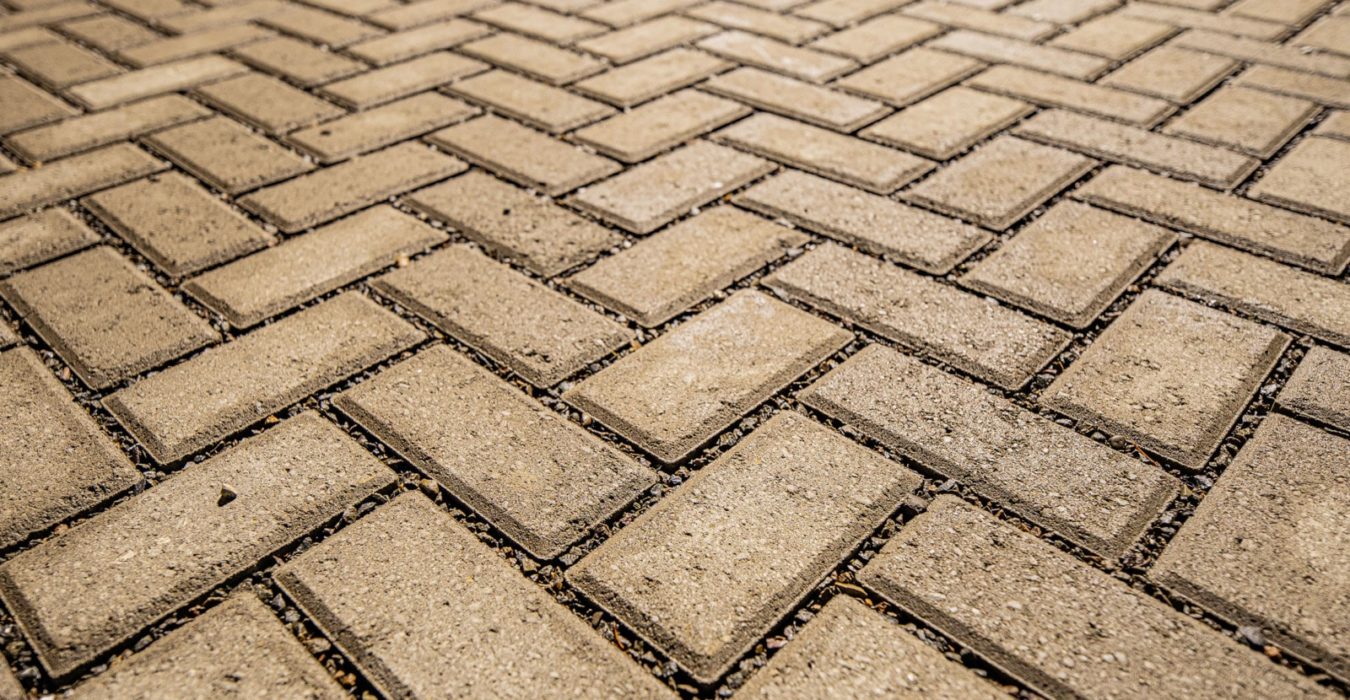
Or, do you have a space that is asking for a paver patio but is decidedly not naturally sloped, or has drainage issues? If so, you have probably wondered how, and if, hardscape will work in your area.
Pavers add a clean and beautiful touch to any landscape. However, one of the disadvantages of traditional pavers is they do not always deal well with water run-off, especially if they are in an area that doesn’t have a natural slope or drainage system.
This is the perfect reason to use permeable pavers. Let’s take a look at what permeable pavers are, how they are different from traditional pavers, and how to know which option to choose for your project.
Permeable pavers are a uniquely designed paver that are specifically designed with drainage in mind. Permeable pavers have wider and more open joints wider and more than non-permeable pavers, allowing water to penetrate between them and enter into the base underneath the paver.
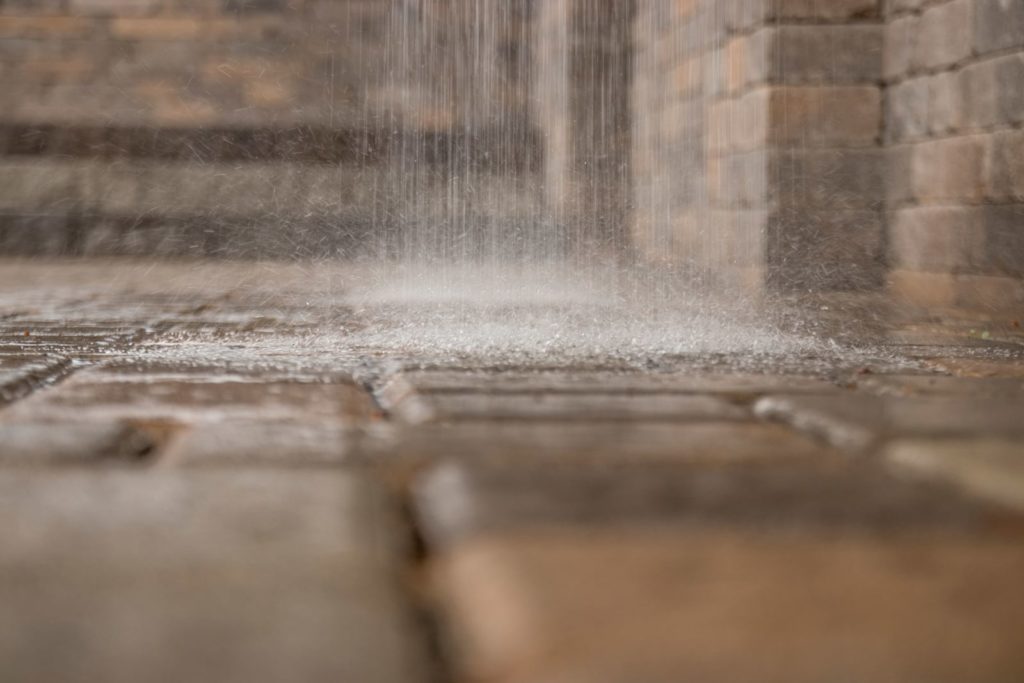
Rather than accumulating on the top of the pavers (and potentially creating toxins in the drains or on top of the pavers), the water will be slowly absorbed through the permeable system and into the soil.
Permeable pavers have other advantages besides only being beneficial for water management and for the environment—they are also very aesthetically pleasing and are not likely to shift over time with factors such as changing landscape and weather patterns.
A non-permeable paver is typically made of a concrete and sand mixture and poured into a mold. These “traditional pavers” are created in many different styles and colors, and provide a smooth, hard surface that can be laid in a pattern. They readily form an attractive backyard landscape, patio, pool edge, or other beautiful and durable hardscape.
Non-permeable pavers do allow some water through the joints and into the soil, but not nearly to the extent of permeable pavers. For a patio that tends to collect pools of water, or for a driveway that slopes toward your house, permeable pavers will tend to be a better solution than traditional non-permeable pavers.
So what are some of the differences between permeable and non-permeable pavers? Let’s take a look at several factors that make permeable pavers unique.
The first difference between permeable and non-permeable pavers is the difference in the base. Permeable pavers have a deep, gravel-only base instead of a base that is thinner and composed of concrete sand and gravel. Specifically, the base is made of 6–8″ of ¾” open aggregate.
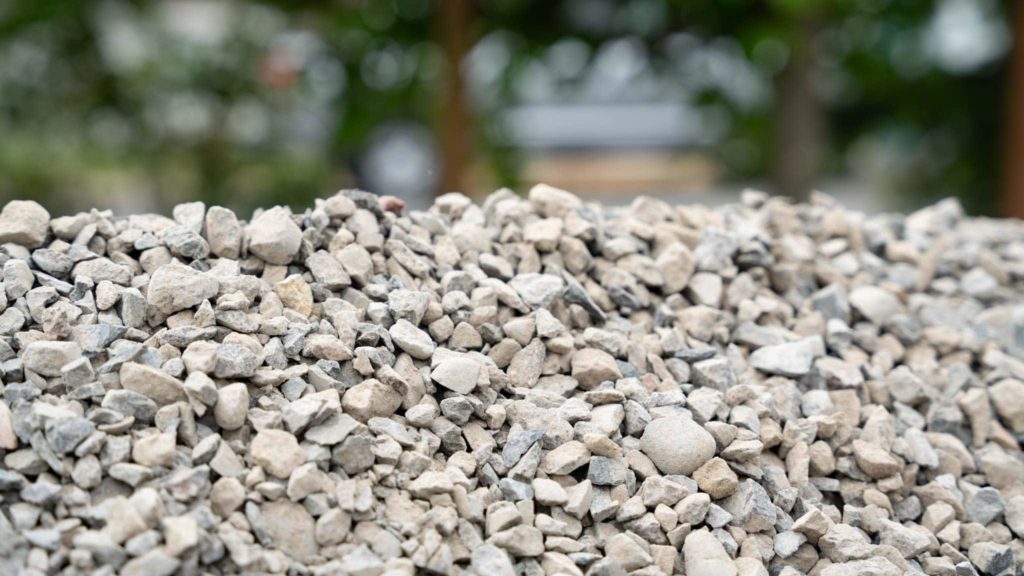
The gravel-only base allows water to soak deep into the soil but just like a non-permeable paver base, provides stability even through changing weather and rainfall patterns.
The second difference between permeable and non-permeable pavers is the difference in joints. Traditional non-permeable pavers have joints that are stiff and filled with sand, such as Polymeric Sand. Permeable pavers have joints that are much wider, allowing water to easily drain through the cracks and soak into the soil below.
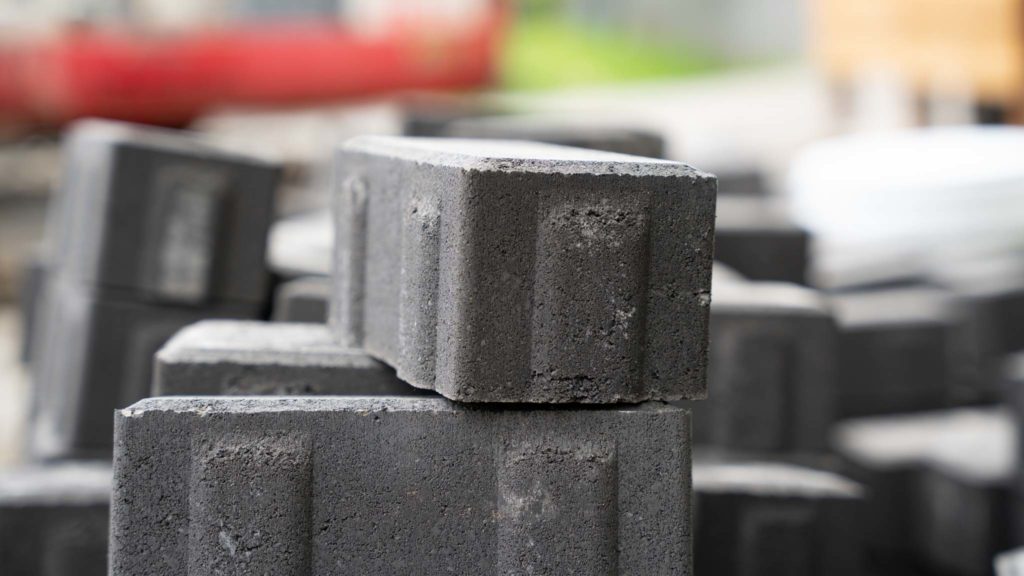
The wide joints are meant to be filled with 1-1½” of ¼” #10 aggregate, which extends the base into the pavers, providing a smooth and stable, yet extremely permeable surface.
Finally, and most significantly, permeable pavers actively direct water back into the earth. They prevent rainwater from pooling and creating waste or toxic water, but instead allow rain to soak back into the soil. Permeable pavers are the top environmentally friendly option and can be used in all the same ways as traditional pavers.
Camino Permeare is one of our top permeable pavers. It is readily used for driveways and patios, and provides a high level of drainage.
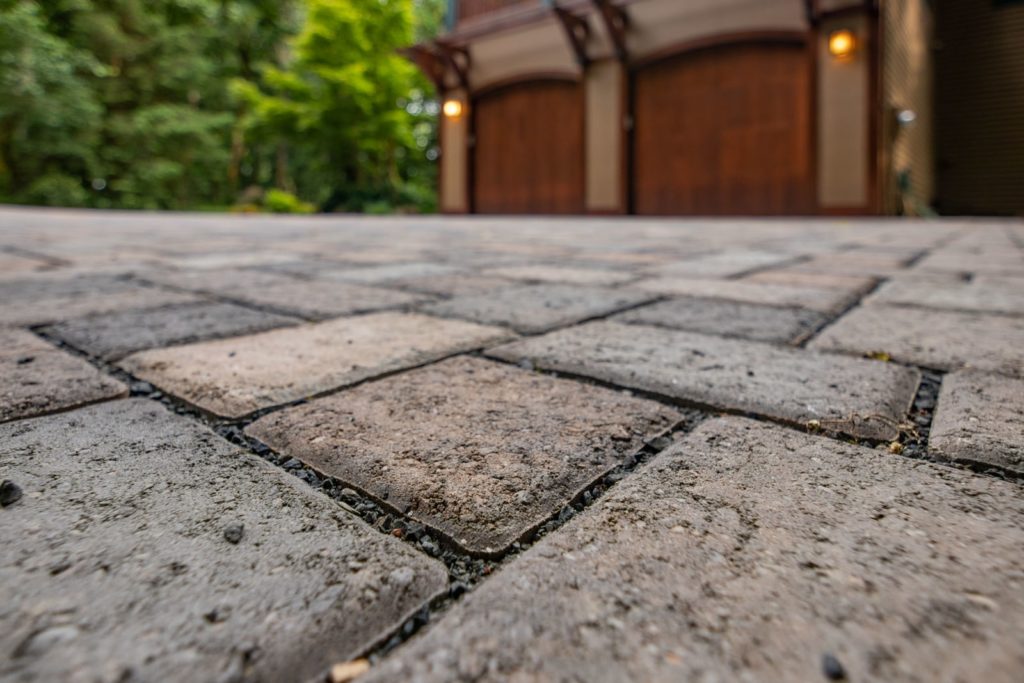
Turf stone is a sturdy paver with openings in the center of each stone that allow grass to grow through. It provides the durability of hardscape, but the look and feel of an open lawn. It is perfect to use in courtyards, and drains water easily into the soil and roots of the turf below.
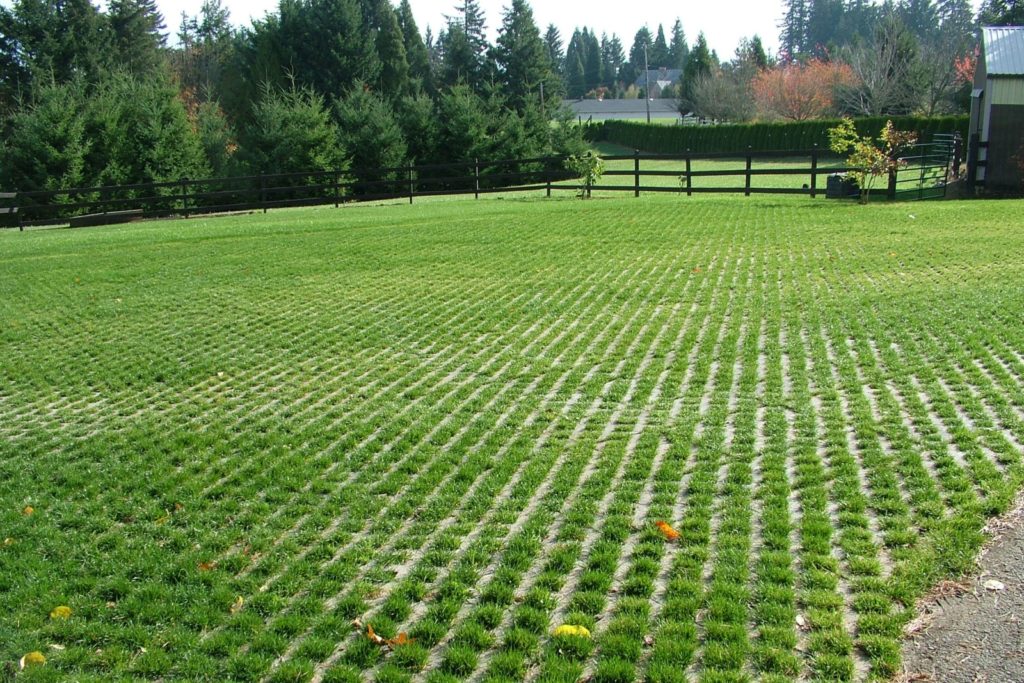
Our VS-5 Drain Pave is typically used for commercial projects. The sturdy paver features an extremely high level of drainage, passing twice the amount of water as a non-permeable paver. It is ideal for large parking areas or driveways.
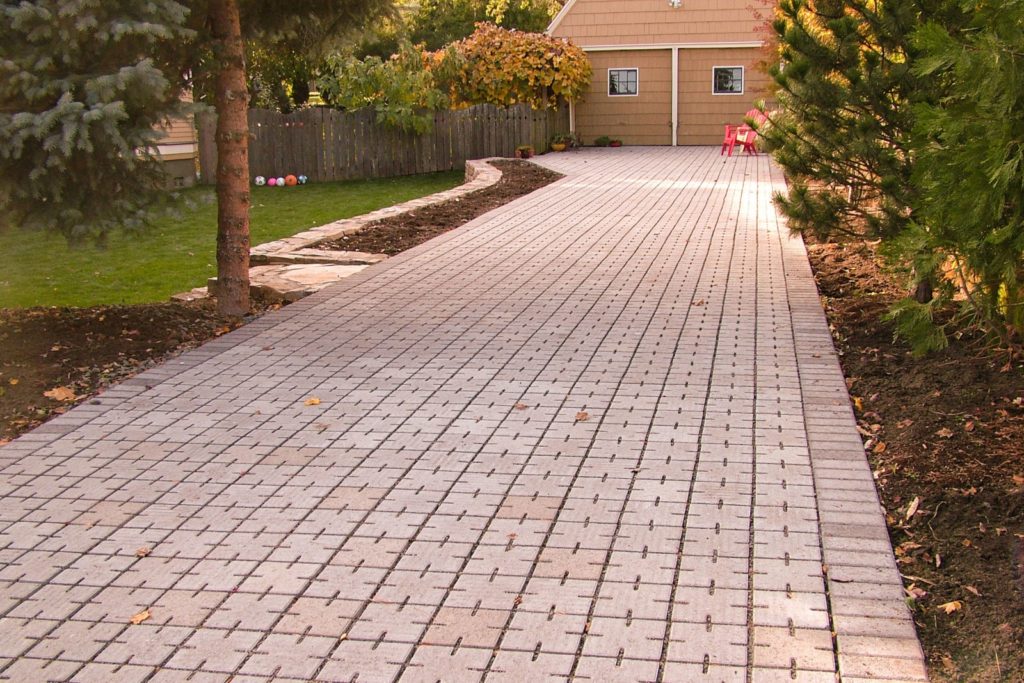
Are you struggling to figure out what type of paver would be best for your project? Click over to our Paver Finder quiz to find which pavers are best suited for what you need.

Choosing a paver can sure feel overwhelming. You have to consider size, style, thickness, color, and more. That’s why we made a short and simple quiz that asks a few questions about what you’re looking for and, at the end, provides a recommendation, or two, you can start with.
Learn More